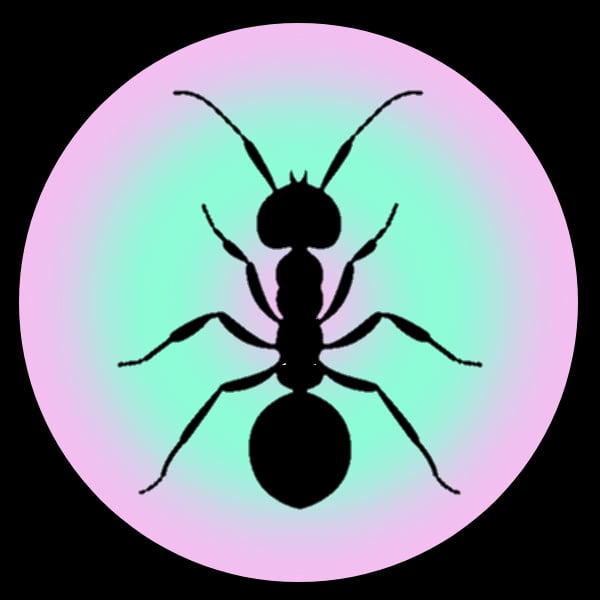It should change to one or the other the moment he looks at it.
I’m not sure that’s how it works. Is it?
But it’s not looking at it, it’s how we measure the state.
Thank you for redirecting there. I actually had physics classes in my higher education but I’m a bit confused on when particule behavior and wave behavior manifest now that’s it’s been some years
Actually everything is both, even you are a wave, just a really shitty one that is much closer to a partical
“Today a young man on acid realized that all matter is merely energy condensed to a slow vibration, that we are all one consciousness experiencing itself subjectively, there is no such thing as death, life is only a dream, and we are the imagination of ourselves. Here’s Tom with the Weather.”

LOL, love that guy!

Fucking LOL
Not just light but everything
Are you saying all matter is merely energy condensed to a slow vibration, that we are all one consciousness experiencing itself subjectively, there is no such thing as death, life is only a dream, and we are the imagination of ourselves?
I’m just talking about wave-particle duality. Every radiation, electrons which have a wave nature has found to have a particle nature, and every particles have a wave nature. Wave nature is inversely related to mass so for big objects wave nature is unnoticeably small
Far out, man.
Like…totally man…
But where’s Tom with the weather?
Electrons also have wave like properties.
All small particles do, they’ve done the double slit expirement with atoms and molocules
I’ve done a double slit experiment with OP’s mom.
thats it, everyone go home
The post title got me the most. Sounds like something you can’t say, like you’ll get arrested over it.
Ok so a wave is the physical expression of energy transferring through a medium
Ocean waves are kinetic energy transferring from water molecule to water molecule, sound is high frequency waves moving through a transmissible medium in a way we can perceive as noise, etcetera.
“Light is a wave and a particle” refers to the fact that since photons travel in a probability wave until perceived, they are capable of being their own medium for electromagnetic energy.
This is why light can travel in a vacuum where other wave based phenomenon cannot, light comes with its own medium to travel through the void with.
light can be glad there is no space police. That’s illegal.
This kinda falls apart once you realize that all small particles (atoms, electrons, molecules, etc) have wave particle duality.
Yes but its the best “in English please” explanation I can come up with.
Otherwise we’re going to have to start talking about the non-zero odds a beautiful woman is going to materialize and accept the second ice cream cone and nobody has the time for that outside of a laboratory or lecture hall.
This medium you’re talking about is called “aether” and was disproven in 1887.
No, that is the separate medium, I’m talking about the photon being both the medium and the energy the medium is carrying.
Quantum uncertainty
It’s both at the same time.
“The Imperial Henry Theory”
That’s a good cat name.
My cat’s name is Scooter.
After listening to 100s of science podcasts, watching 1000s of science vids on YT, and sleeping on a Neil Degrasse Tyson pillow I still don’t understand how something can be both a particle and a wave. Sounds made up, like by a lazy SWE
It’s easier once you understand that they are not both, particles are actually a type of wave 🙃
Reality is an illusion, it’s waves all the way down, these meat prisons hallucinate solidity to cope with the presence of complex force interactions they can’t properly perceive, Ph’nglui mglw’nafh Cthulhu R’lyeh wgah’nagl fhtagn
Iä! Iä!
I think the best way of thinking about it is that it’s neither. Vaguely speaking, “quantum stuff” can be described very well by math, and this math has some elements of “waveness” (think wave equations, interference) and “particleness” (think ladder operators or maybe position eigenstates). But that doesn’t mean it’s one, the other, or even both — it’s described by some math, and that math is agnostic as to what you call it.
In our macroscopic experience it’s easy to divide the world into these two convenient buckets, but the reality is different.
Personally I think this weirdness is exploited by popsci to get more clicks, but maybe that’s just my jaded opinion after years of grad school…
As a general rule, if you set out to design an experiment to show that light is a wave (or a particle), it will behave as a wave (or a particle). The more fun thing is to show that it behaves as both, which can be done by utilizing sensitive detectors and exploiting interference patterns.
Simple, it’s #FFFFFF
depends. sunlight is #edd59e
sunlight is a mix of all visible wavelengths and more, how can it have a specific colour?
You have specific colours depending on sun status like Lee 025 sunset red or something like Lee 764
Okay, this is a nice meme.

Have fun.
Light is made of quanta. Neither waves nor particles.
The word “quanta” in this context means discrete units of energy. It is a general term; in the case of electromagnetic energy a quantum is a photon.
Mindbogglingly, light behaves as both particles and waves, not neither. The best explanation I’ve seen for this so far is this video about quantum fields.
Here is an alternative Piped link(s):
this video about quantum fields
Piped is a privacy-respecting open-source alternative frontend to YouTube.
I’m open-source; check me out at GitHub.
A photon is a quanta of light. Our picture of light, to this point, has been that of a wave. Wave-like characteristics are responsible for diffraction and refraction. However, light is absorbed and emitted one photon at a time.
I knew some new study would betrayal me, well I still wave my particle…
isnt a photon just a wave in the photon field or w\e?
If quantum field theory is correct, yes.
Quanta is just a word (related to quantity) as in: “smallest divisible quantity of”
So in the case of light we would be talking about photons, which are a quanta of light (e.g. discrete “packets” of light).
Light behaves as a wave, e.g. we can talk about the frequency of light. But it’s also pretty different from macroscopic waves e.g. it’s not accurate to think of them as what your see on a typical sinusoid graph, as at that level things don’t really have a fixed shape or position, we’re talking more about areas where they “probably” are (see: superposition, HUP etc)
It’s useful to think of light in terms of discrete photons for a number of reasons, e.g. in pair production, 1 gamma photon would be sufficient to create 1 electron/positron pair.
Photons also exhibit other particle-like behaviour despite having no rest mass. But the idea of rest mass becomes less significant at that level anyway as the line between energy and mass (e=mc²) gets blurred. And any sufficiently high energy object will likely exhibit some massive properties (hence why we tend to use MeV - a measure of energy - instead of a measure of mass, even when performing calculations with massive particles such as electrons.
Or both















